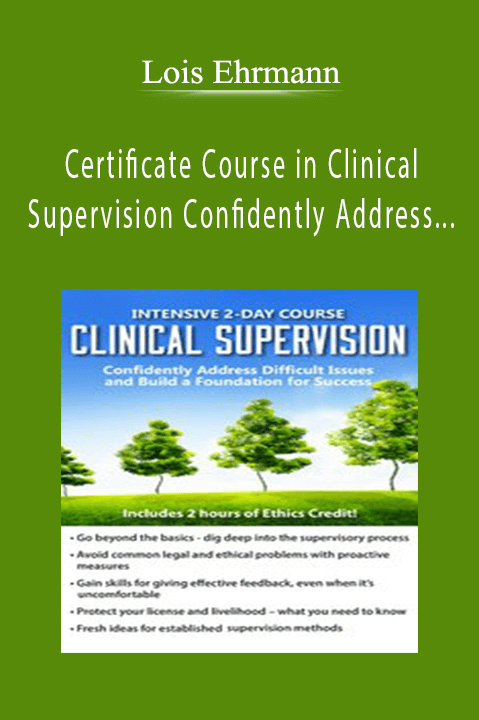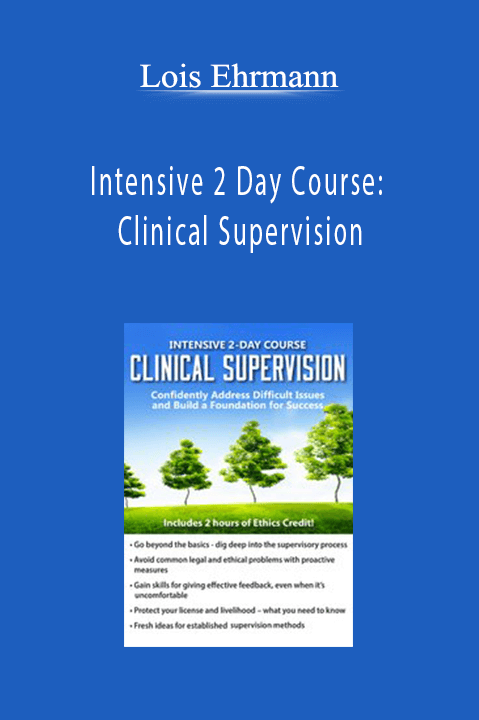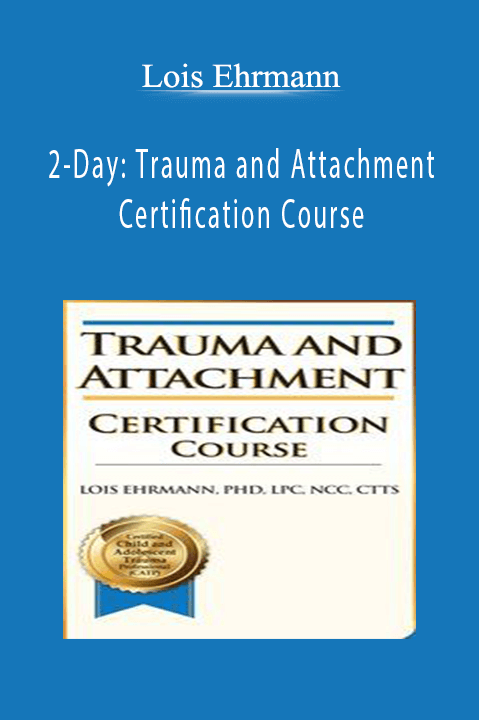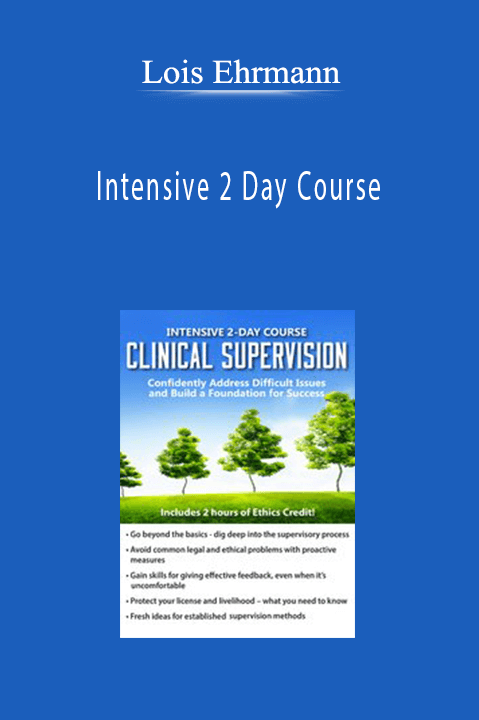Certificate Course in Clinical Supervision Confidently Address Difficult Issues and Build a Foundation for Success – Lois Ehrmann
After years of supervising trainees and developing clinicians, are you still interested in fresh perspectives on supervision and updated research on best practices?
If you’re just starting out as a supervisor, are you hoping to hone your skills and get up to speed quickly so you can help develop supervisees into competent and capable clinicians?
While providing supervision is a valuable way to give back to the field and advance your career, it also requires a different set of skills than your client work – and it brings a wide range of new processes and issues to consider.
This comprehensive certificate training course will give you fresh, innovative ideas and techniques to add to your supervision practice, regardless of your level of experience – including how to work with challenging supervisees, provide effective feedback, and work through difficult situations.

Getting Started – How to Optimize the Initial Supervision Sessions
- The 3 main “hats” you’ll wear as a supervisor, and when to put on each one
- Research-supported interventions for building a solid foundation in the supervisor-supervisee relationship
- The key information you need to include on your informed consent documents to set your supervisee’s expectations in advance, helping prevent issues down the road

Models of Clinical Supervision – Find the Right Fit for You and Your Setting
- How your role as supervisor changes, depending on the stage of development your supervisee is in
- The 5 specific steps to help your supervisee work through countertransference issues
- Demonstrations of the different models of supervision to help find the right fit for you
- How attachments styles can affect the supervision relationship and the way your supervisee deals with feedback

The Supervisorndation for Everyone’s Success
- Common pitfalls to avoid in order ty Alliance: Building a Fouo build a stronger alliance in supervision
- The 3 types of strategies for working through conflicts, both inside and outside the supervision session
- A visual metaphor for addressing countertransference with supervisees, making it an acceptable and normal part of the therapy process
- What research has shown to be the most beneficial way to help challenging supervisees
- Standardized measures you can use to evaluate the supervisory alliance – pointing out blind spots and showing where to focus your attention

Techniques and Strategies for Effective Supervision
- The training tool that is recommended as the first step for all supervisors, helping build self-awareness
- How to give effective feedback to your supervisees, including the ratio you should use for positive and negative feedback
- The easy-to-remember acronym for giving your supervisees the most meaningful feedback possible
- What types of activities in supervision have been shown to increase effectiveness long-term
- How to resolve different types of conflicts in supervision – both preparing for them in advance and working through them when they happen
- The written exercise that helps supervisees become more aware of their own issues, values, and biases in working with clients

Cultural Competence – Proactive Treatment of Cultural Differences
- The best FREE resource available to help both you and your supervisees improve cultural competence
- How to thoughtfully discuss cultural differences with your supervisees in your first sessions together
- The subtle way you can identify supervisees’ attitudes, beliefs, and values that may need to be addressed in supervision (and giving your supervisee permission to do the same)

Group Supervision
- What to cover with supervisees before starting in group – and how to make sure you’ve got the right fit before you start
- How to structure the flow of group supervision to help supervisees get the most out of each session
- 4 simple ways you can strengthen the supervisory alliance in your groups today

Legal & Ethical Issues – Protect Yourself, Protect Your License
- The most important ethical issues you need to consider when working with supervisees
- How to determine if you’re a “competent supervisor” – using the 33 areas of competency (in 5 main categories) identified by research and supervision experts
- The 3 stages of development as a supervisor – assessing which stage you’re in now and showing what actions will help you take the next step
Get Download Certificate Course in Clinical Supervision Confidently Address Difficult Issues and Build a Foundation for Success – Lois Ehrmann at Offimc.click Now!
Delivery Information
- Upon ordering the product, a delivery email with download instructions will be sent immediately to you so that you may download your files. If you log in (or create an account) prior to purchase you will also be able to access your downloads from your account dashboard.
- It is a digital download, so please download the order items and save them to your hard drive. In case the link is broken for any reason, please contact us and we will resend the new download link to you.
- If you don't receive the download link, please don’t worry about that. We will update and notify you as soon as possible from 8:00 AM – 8:00 PM (UTC+8).
- Please Contact Us if there are any further questions or concerns you may have. We are always happy to assist!












6 reviews for Lois Ehrmann – Certificate Course in Clinical Supervision Confidently Address Difficult Issues and Build a Foundation for Success
There are no reviews yet.